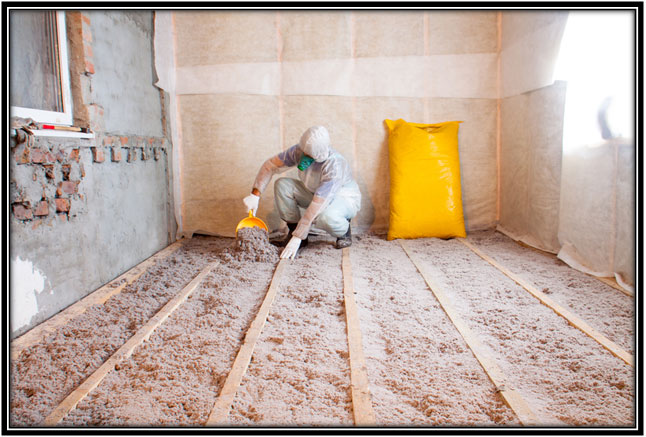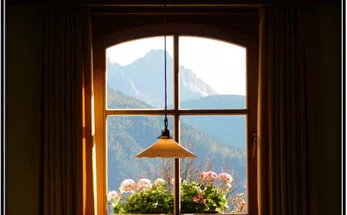
Image Source: Shutterstock
Winter is just around the corner and that means it’s time to start prepping your home for colder weather. As the snow starts to fall, your home’s relationship to the outdoors will change. Whether you plan on sitting tight all winter or you’re heading south to spend some time at your summer home, make sure you have everything you need to keep your home warm and secure over the next several months. Get your home in shape with these must-know winterization tips.
Seal Air Leaks: If you want to stay warm this winter, you’ll need to seal all those tiny cracks and leaks where cold air can slip inside your home. Otherwise, your heating bills will be through the roof as your furnace works overtime to keep your home warm. Walk around your property and seal any openings around baseboards, doors and windows with foam insulation or caulk. If you’re not sure where to insulate, use your hand to feel for any air leaks.
The U.S. Department of Energy recommends sealing openings around plumbing, ducts, electrical wires and anything else coming through the wall. Install foam gaskets around electrical plates and switches. And use fire-resistant insulation, including sheet metal or sheet rock, around the furnace, fireplace and other fire-prone areas.
Wrap Up Your Pipes: Regardless of what kind of water heating system you have, you can reduce your energy bills by insulating your pipes with either insulation pipe sleeves or pipe insulation wrap. This protects your pipes from the cold air, so your water heating system won’t have to work as hard to keep the water warm. You also don’t have to worry about the pipe freezing and bursting open, filling your home with water.
Insulate Your Attic: Attics are notorious for their poor insulation and leaky joists. Unless you want cold air seeping into your home all winter long, you’ll need to buttress the walls and floors in your attic with foam insulation. Remember that heat rises, so you’ll need to install a barrier near the top of your home. The EPA recommends sealing the air flow in your attic before you begin the insulation process. Once you’ve plugged any holes with foam insulation, put a bed of foam over the floor and along the wall to reinforce these barriers.
To Improve your homes insulation factors fitting insulation in your attic, loft or roof space is an incredibly efficient way. Having roof or loft insulation installed within the property can be more energy-efficient and reduces your heating bills.
Tune Up Your Furnace: The last thing you want is your furnace to fail halfway through winter. It’s best to have your furnace inspected and repaired before the coldest months arrive. Winter is also the busiest season for HVAC professionals, so you might as well beat the rush and order a tune-up sooner rather than later. A professional can fix any issues with your furnace to make sure it’s working as efficiently as possible. A malfunctioning furnace will cost you a fortune over the next few months. If your furnace is approaching the end of the line, this might be a great time to invest in an energy-efficient heating system.
Winterize Your Swimming Pool: Winter is no friend to swimming pools, so you’ll need to board things up to make sure you have a healthy, functional pool in the spring. To winterize your pool, you should first check the chemical levels in the water using a chemistry test kit before you seal things up for the season. Check your owner’s manual to see what levels the manufacturer recommends.

Image Source: ShutterstockNext, you’ll want to clean the pool, remove any debris floating in the water and clean the pool filter. It’s also a good idea to scrub the vinyl edges of the pool with a brush to remove any dirt, algae and other bacteria that may be lounging around. To clean the filter, check the owner’s manual for instructions. You may want to replace the filter, backwash the filter and clean out any gunk that’s accumulated in the filter tank.
You’ll also want to add some winter chemicals to your pool to keep the water sanitary over the next few months. Most winter chemical kits include chlorine shock and algaecide to keep algae at bay. You’ll also want to lower the water level in your pool using a sump pump. The owner’s manual should walk you through this process.
Finally, it’s time to remove any accessories floating in the pool. Shut down your skimmer by removing the interior parts. And seal your pool for the season with a special winter cover. You might also want to cover the pool heater to protect it from the elements. Follow these steps and your pool will stay clean and safe all winter long.

Image Source: ShutterstockSecure Tree Limbs : With the house and pool in good shape, it’s time to turn your attention to the perimeter of your home. Depending on the local climate, winter weather can pummel the trees and bushes around your property with ice and snow, which might cause one of these branches to snap. If there are any large branches or bushes near your home, you might want to have them trimmed before the worst of winter arrives. You never know when an icicle-laced branch might crash into the side of your home, costing you a fortune.
Clean Your Gutters: The gutters around your home will freeze over before you know it as the temperature starts to drop. Instead of letting all kinds of debris turn to ice, it’s best to clean out your gutters before winter arrives. Otherwise, all that ice and snow will pile up around the edges of your home, which might cause your gutters to eventually collapse. You can also add snow guards that protect your gutters from the elements just to be safe. Make sure water can drain properly from your roof. Run some water through the down pipes so you know they’re not clogged.
You have your work cut out for you when it comes to winterizing your home. Protecting your home from the elements will help you save money on your heating bills and prevent lasting damage to your property. An icy branch, frozen pipes or a poorly-insulated attic can cause major headaches down the line. Invest in your home’s future and start winterizing your property today.



